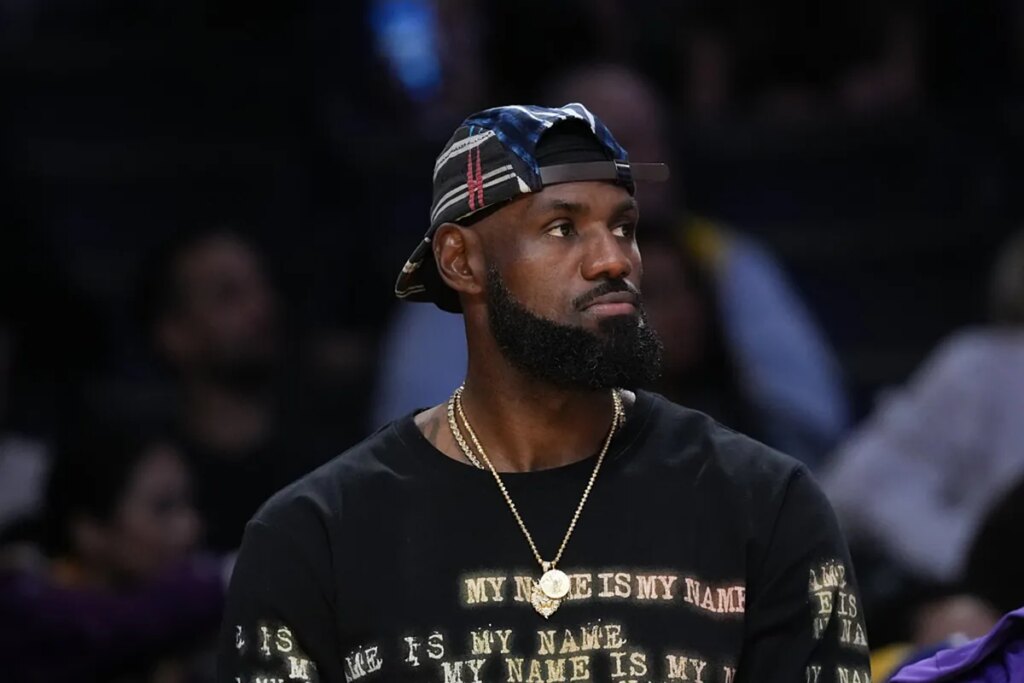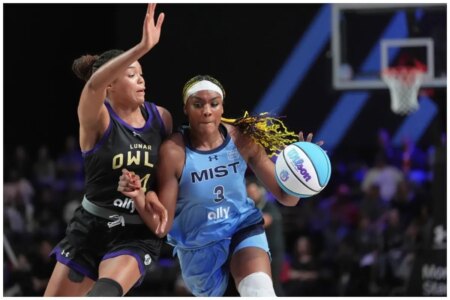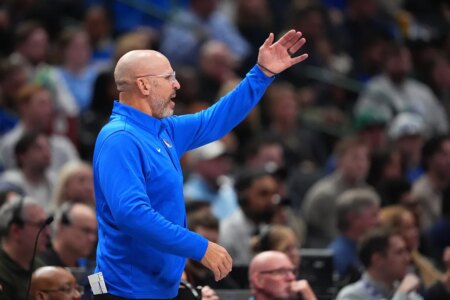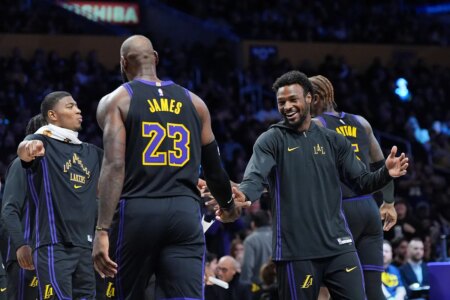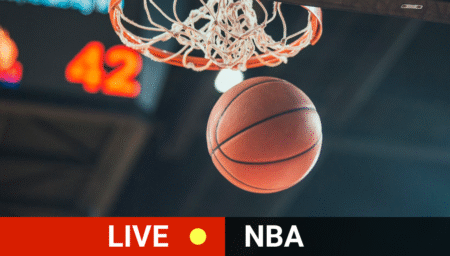Former NBA guard Jeff Teague recently made headlines with explosive claims about LeBron James and the influence of his inner circle.
On his “Club 520” podcast, Teague alleged that James’ camp actively monitors and pressures former players or media figures whenever they speak critically about the superstar.
“Anytime you say anything about Bron, people call you and say, ‘Hey man, you might want to chill. I know you got some funny stories… leave LeBron alone,'” Teague said. The former guard added that these calls are serious, coming from what he described as “real people” closely connected to James.
The controversy started earlier this year when Teague suggested on the same podcast that James had allegedly used performance-enhancing drugs during his time with the Miami Heat. Teague claimed: “He was on steroids, bro… they started testing for HGH… he had to sit out, said his back was hurt, sat out for like three weeks and came back skinny.”
The remarks quickly went viral, sparking outrage and debate among fans and analysts alike. However, Teague later clarified that the comment was intended as a joke, emphasizing on social media that “Y’all weird I was joking about Bron… He was just that dominant, chill.”
Power dynamics in the NBA
While Teague’s allegations about steroid use were retracted as humorous, his broader claims about James’ camp raise significant questions about influence in professional sports. According to Teague, James’ team does more than protect a superstar’s image – they exert pressure over what can be publicly discussed.
“Their whole camp, they run the league,” he asserted, highlighting the reach and authority that James’ inner circle wields. For players, former athletes, and commentators, this dynamic may affect what stories are told and which criticisms are shared publicly.
The situation underscores the complex relationship between freedom of speech and career risk in the NBA. With endorsement deals, media investments, and team affiliations at stake, many figures may hesitate to voice negative opinions about high-profile players.
Teague’s account suggests that even casual remarks about James, who is widely regarded as one of basketball’s greatest players, can provoke direct intervention from his representatives.
Whether or not one fully accepts Teague’s claims, the controversy shines a light on the intersection of reputation, influence, and control in professional sports. LeBron James himself has not publicly addressed the specific allegations, and there has been no formal investigation into performance-enhancing substances related to him.
Still, Teague’s comments highlight the reality that in the NBA, access and influence can shape not only careers but also the broader narrative about players.
Ultimately, this story is not just about one athlete’s reputation; it is a glimpse into the power structures behind the scenes. If even a former NBA All-Star feels compelled to “chill” when discussing one of the league’s biggest names, it raises important questions about how freely the basketball community can discuss its most influential figures.
Read the full article here





